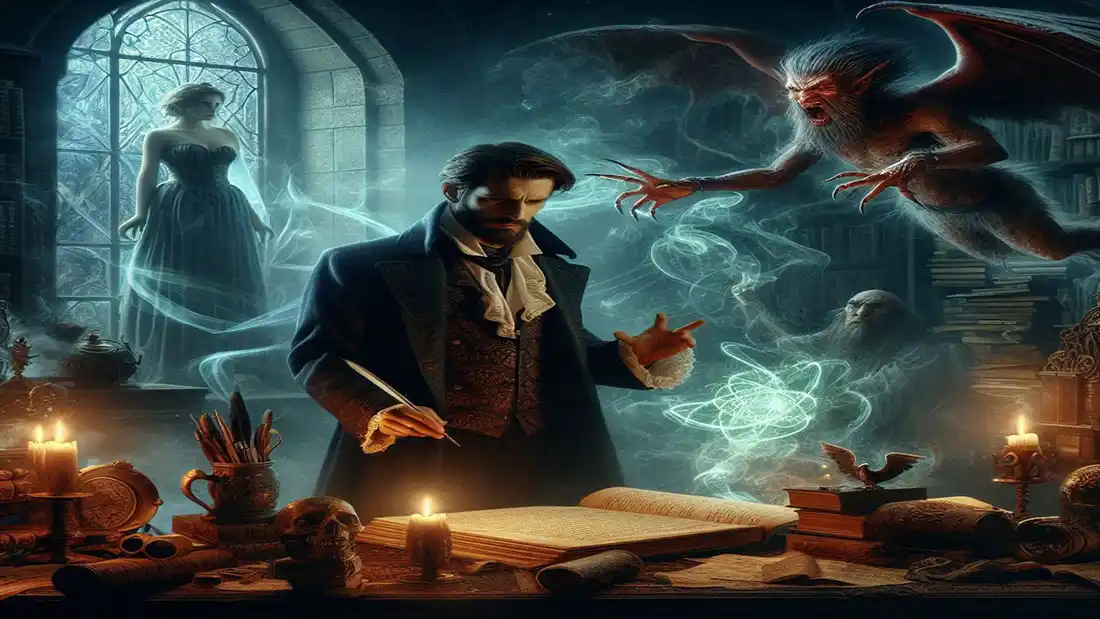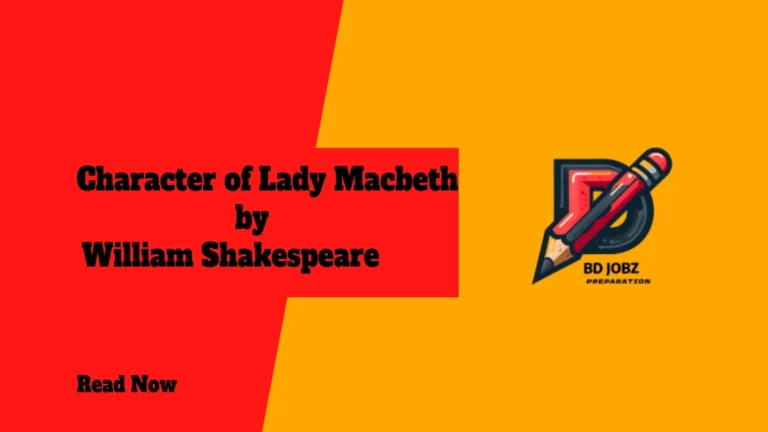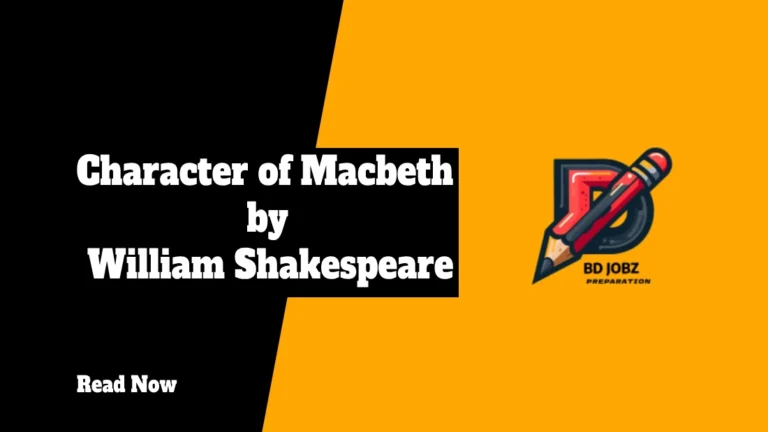Welcome to BD JOBZ PREPARATION, your go-to blog for insightful literary discussions. Today we are going to discuss about comic scenes in Doctor Faustus. Christopher Marlowe’s Doctor Faustus is a tragic play that explores themes of ambition, power, and damnation. However, despite its serious tone, the play also includes several comic scenes that provide humor and entertainment. These scenes serve multiple purposes—they offer comic relief, highlight the foolishness of Faustus, and contrast with the darker elements of the story. The presence of humor in a tragic play like Doctor Faustus makes it more engaging and adds depth to the narrative.
Read More: Morality Play Doctor Faustus
Comic Scenes in Doctor Faustus

The Purpose of Comic Scenes in Doctor Faustus
The comic scenes in Doctor Faustus play an essential role in the overall structure of the play. They provide relief from the intense and serious moments, making the tragedy more bearable for the audience. In addition, these scenes mock Faustus’s ambitions, showing how he wastes his magical powers on trivial and foolish actions. The contrast between Faustus’s grand dreams and his petty use of power emphasizes his downfall.
The Comic Characters
The comedy in Doctor Faustus is mainly provided by secondary characters, including Wagner, Robin, Rafe, the Clown, and the Horse-Courser. These characters engage in foolish activities that reflect Faustus’s own reckless behavior. Their actions serve as a mirror to Faustus’s misuse of his supernatural abilities, showing that even common people can act as foolishly as a learned scholar when given power.
The Clown Scene (Act 1, Scene 4)
One of the earliest comic scenes in Doctor Faustus involves Wagner, Faustus’s servant, and a Clown. Wagner attempts to persuade the Clown to become his servant, using Latin words to sound impressive. However, the Clown does not understand him and responds in a humorous way. This scene mocks the scholarly pretensions of Faustus and scholars in general, showing how knowledge without wisdom can be meaningless.
Robin and Rafe’s Magic (Act 2, Scene 2)
Another comic scene in Doctor Faustus features Robin and Rafe, two low-class characters who steal one of Faustus’s magic books. They attempt to use it to perform magic, but their spells are ridiculous and ineffective. This scene serves to parody Faustus’s own use of magic, showing that just as these clowns misuse magic for foolish reasons, so does Faustus.
The Pope Scene (Act 3, Scene 1)
One of the most famous comic scenes in Doctor Faustus is when Faustus visits the Pope in Rome. Invisible, he plays tricks on the Pope and his cardinals, stealing their food and striking the Pope. This scene is humorous and satirical, mocking the corruption of the Catholic Church. However, it also reveals Faustus’s descent into childish pranks rather than meaningful achievements.
The Horse-Courser Scene (Act 4, Scene 2)
In another comic episode, Faustus sells a horse to a Horse-Courser (horse dealer) but warns him not to ride the horse into water. The Horse-Courser, thinking it is a foolish warning, ignores it and rides into a river, only to find the horse has disappeared. When he returns to confront Faustus, he tries to pull Faustus’s leg, but it comes off in his hands—only to reveal Faustus was playing a trick on him. This scene adds humor but also shows how Faustus is wasting his powers on petty tricks instead of achieving greatness.
The Final Comic Scene: The Trick on the Duke and Duchess (Act 4, Scene 4)
In this scene, Faustus impresses the Duke and Duchess of Vanholt by creating grapes out of season. While this act amazes the nobility, it is a trivial use of his immense powers. The humor in this scene lies in how Faustus, who once sought ultimate knowledge and control over nature, is now performing simple tricks to entertain people. This scene reinforces the idea that Faustus’s grand ambitions have led him to meaningless displays of power.
The Contrast Between Comedy and Tragedy
The comic scenes in Doctor Faustus are not just for entertainment; they create a stark contrast with the tragic elements of the play. They emphasize the foolishness of human desires and the way people, including Faustus, misuse their opportunities. As Faustus’s end approaches, the humor in the play disappears, making his downfall even more tragic.
Read More: Symbolism in Doctor Faustus
The comic scenes in Doctor Faustus serve several important functions—they provide comic relief, mock the misuse of power, and contrast with the serious moments of the play. Through these scenes, Marlowe highlights Faustus’s wasted potential and makes the audience reflect on the nature of ambition and folly. These humorous moments, while entertaining, ultimately deepen the tragedy of Faustus’s downfall, making the play more impactful and thought-provoking. Stay tuned to BD JOBZ PREPARATION for more insightful literary analyses and educational content!



